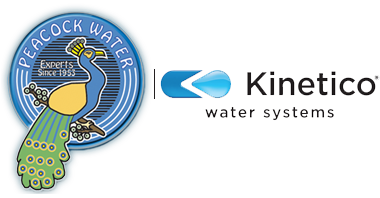Chlorine is commonly used for disinfection in municipal water treatment plants, it helps in effectively killing harmful bacteria and viruses present in the water. While killing these pathogens chlorine often reacts with other substances present in the water and forms byproducts that can pose serious health risks. Let’s understand the effects of chlorine in drinking water and uncover alternative solutions for cleaner, safer water.
The Benefits of Chlorine
Chlorine plays a crucial role in preventing the spread of waterborne diseases like typhoid, cholera and dysentery. By killing disease-causing germs like Salmonella, Campylobacter and norovirus, chlorine helps disinfect water and protects public health by ensuring access to safe drinking water to millions of people all over the world.
Chlorine Byproducts
During disinfection, chlorine sometimes reacts with the organic matter present in the water and forms certain disinfection byproducts (DBPs) such as trihalomethanes (THMs) and haloacetic acids (HAAs). Although the Environmental Protection Agency has set regulatory limits for the maximum amount of compounds allowed to be present in water, regular exposure to high levels of DBPs can pose serious health risks. Some health risks associated with DBPs include:
- Cancer – Studies have shown that exposure to DBPs increases the risk of certain types of cancer such as colon cancer, bladder cancer and rectal cancer.
- Reproductive Health – DBPs can negatively impact reproductive health, especially in pregnant women. Regular exposure to high levels of DBPs has been linked with increased chances of miscarriages and birth defects.
- Neurological Effects – Recent studies have suggested that exposure to DBPs can negatively affect the nervous system, particularly in children.
Reducing Chlorine Exposure
While you can’t eliminate chlorine from municipal water supplies, there are various ways that you can adopt to reduce your exposure to chlorine:
- Water Filtration – You can install an advanced water filtration system at home to reduce chlorine levels and other impurities in your drinking water. It’s best to opt for filters that are specifically built to remove chlorine and DBPs.
- Shower Filters – Shower filters are an easy way to reduce the amount of chlorine that comes into contact with your skin and hair. These filters effectively remove chlorine and other contaminants from your water and ensure that your skin and hair are exposed to softer water.
- Bottled Water – Buying good quality bottled water means getting access to water that is free from contaminants. While this may seem like a convenient option initially, it increases your contribution to plastic pollution and is bad for the environment.
Peacock Water: Your Solution for Cleaner Water
Access to clean and safe drinking water is necessary to maintain a healthy lifestyle. At Peacock Water, we are dedicated to providing cutting-edge water filtration systems that ensure a consistent supply of high-quality water that is free from chlorine, DBPs and other harmful contaminants.
For advanced water filtration, get in touch with us today so that our skilled team can assist you in choosing an ideal water filter based on your unique water needs.






